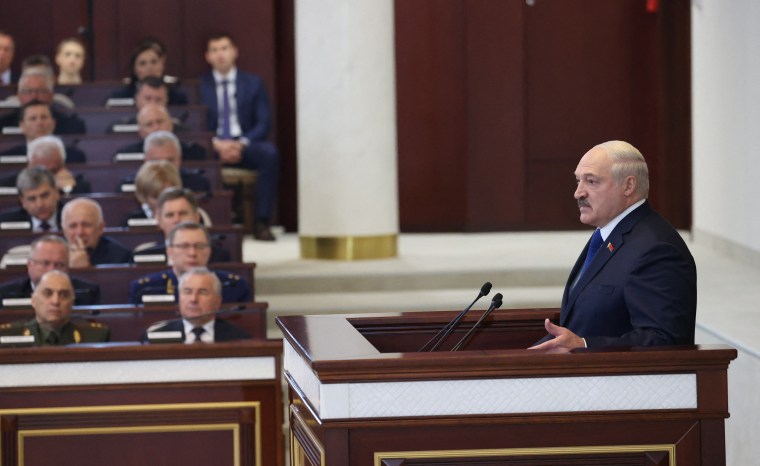New York, July 6, 2023—In response to Belarusian President Aleksandr Lukashenko signing into law of a bill strengthening control on the media on Saturday, July 1, the Committee to Protect Journalists issued the following statement:
“Belarus’ new media law translates long-standing arbitrary practices of silencing dissent and independent reporting into the legal sphere,” said Carlos Martinez de la Serna, CPJ’s program director, in New York. “Authorities should reverse this law, stop adopting legislation that further restricts press freedom and isolates Belarus from the rest of the world, and let the media work freely.”
According to a statement published on the office of the president’s website, the amendments to the country’s media law are “aimed at improving the mechanisms protecting national interests in the media sphere, as well as at expanding the tools for reacting to unfriendly actions against Belarus.”
The Council of the Republic, the upper house of parliament, adopted the amendments on June 14, following passage by the lower house on May 31. The text of the law was published on July 6. It will enter into force in three months.
The new law enables the Ministry of Information to ban the activities of foreign media in Belarus “in the event of unfriendly actions by foreign states against Belarusian media,” such as the banning of a Belarusian media outlet abroad. Such bans can include barring the distribution of a media outlet, blocking its activities, canceling the accreditation of its journalists, and prohibiting it from opening offices in Belarus.
The law also broadens the basis for blocking foreign and local news websites and news aggregators, and empowers authorities to cancel a media outlet’s registration if its founder or legal entity is involved in activities deemed “extremist” or “terrorist.”
“These amendments are mainly technical in nature. They introduce into the law something that is already widely practiced by Belarusian authorities,” Barys Haretski, deputy head of the Belarusian Association of Journalists, a banned local advocacy and trade group, told CPJ via messaging app. He added that Belarusian authorities have already blocked websites without court orders.
“In practice, [the foreign media] are already unable to work, they do not receive accreditation, and a number of [foreign] media outlets are recognized as extremist formations,” Haretski said.
Since protests against Lukashenko’s disputed reelection in 2020, Belarusian authorities have cracked down on the local and international press. At least 26 journalists were imprisoned in the country at the time of CPJ’s 2022 prison census, all of whom were detained since late 2020.
